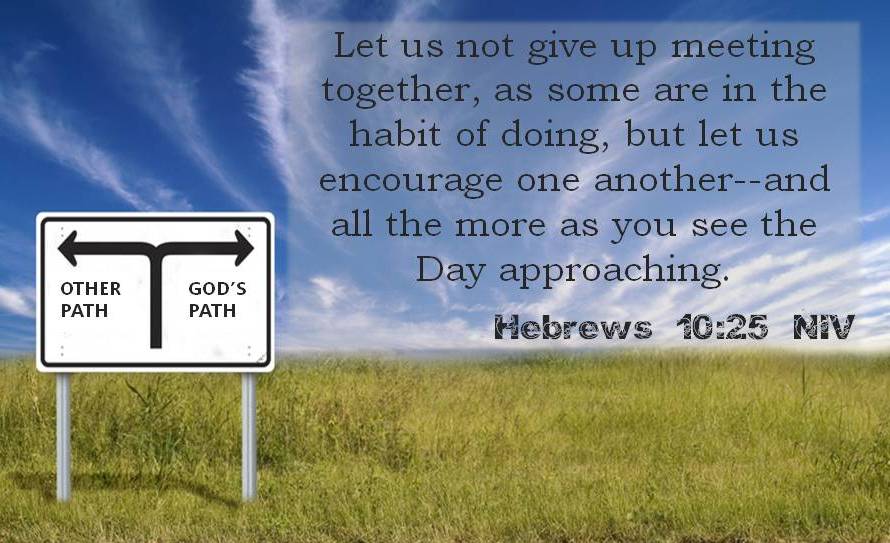Home | About Us | Directions | Bulletins | Sermons & Audio | Cross Of Christ Studies | Classes | Student and Parent Resource Page | Dangers Facing the "Non-Traditional"
Doctrine and Teaching
by Doy Moyer
Pigeonholing is the process of compartmentalizing. By labeling a particular item a certain way, we can categorize it with other items labeled the same, and thus deal with it from a priority base of which items we think are most important. We all try to logically pigeonhole matters by priority. Sometimes, though, that process can become fairly arbitrary, and I believe the phrase “doctrinal issues” tends to fall into this category.
We often look at various questions in terms of being “doctrinal issues” or non-doctrinal issues (and no, I’m not going to “make a list” here). What is usually meant by this is that some matters are significant, if not vital, points of teaching, while others aren’t so much. This concept of “doctrinal” fits more along the lines of dogma (a set of doctrines authoritatively affirmed). If the issues do not carry the significance, in our judgment, then we deem them non-doctrinal, and “it is ok to disagree on those issues.” But what exactly is a “doctrinal issue”?
While the Bible uses the term “doctrine” (e.g., 1 Tim. 4:16), the word “doctrine” has come to have a life of its own. “Doctrine” is often used to refer more to a set of particular dogmas or tenets affirmed by certain groups. While doctrine and teaching mean the same thing in Scripture, a modern definition would include, “something taught as the principles or creed of a religion … tenets.” In other words, doctrine (as used today) is not just teaching; it is teaching that embodies a set of beliefs peculiar to a particular religious body, the violation of which brings about some kind of negative consequence. The problem is that this is not how we find the term used in Scripture.
Here’s a challenge. Show just one passage where the word “doctrine” means anything other than “teaching.” Think about it. Do we give the impression that some matters of “teaching” are “doctrine,” while some other matters of “teaching” are “non-doctrinal” (i.e., not a part of “our” core tenets)? Here’s the point: anything that is taught is doctrine, including our applications. Teaching – right or wrong, important or not, sound or unsound, in application or not, is doctrine by definition. Vital or not, if it is taught, it is a doctrine.
Here’s where it gets more difficult. Some doctrines do not carry the same weight as others (cf. Matt. 23:23-24). I teach that a congregation may have a building in which to meet; that is a doctrine I accept. But whether a group owns a building or not is ultimately not eternally important; it won’t condemn or save anyone. This is not on par with a doctrine for which its violation would cause eternal destruction (2 Pet. 2:1; 3:16-17). Whether a person eats meats or not is ultimately not going to condemn or save. It is not a doctrine that would lead to condemnation (unless a brother was divisive about it, which seems to be a major point of Romans 14). On the other hand, Jesus said, “unless you believe that I am He, you will die in your sins” (John 8:24). What we believe and teach about Jesus does have eternal consequence.
The distinctions that need to be made are over the significance of the doctrine itself, not over whether a teaching is actually “doctrinal.” If it is taught in any way, then it is doctrine. How significant will that doctrine be? This is why we need to be diligent and careful students.
Let’s be careful not to misuse terms. It’s too easy to espouse a pet phrase (even if the Bible does not use it like we do), then use it as a measuring stick for everyone else’s soundness. If we are concerned about using Bible terms in Bible ways, then we need to think about how we sometimes use the word “doctrine.” Most importantly, let’s make sure that our doctrine is sound and that our application is proper (two sides of the same coin). Scripture needs to be taught and applied correctly.
Other Articles by Doy Moyer
Be Thankful for God's Authority
The Anti-Gospel
What Does Submission Look Like?
On Grace and Being Misunderstood
How Social Media Posts Can Signal Spiritual Problems
"I Don't Need the Church"
Moralizing Over the Gospel
Alcohol and Wisdom
Brotherly Love
The Logic of Authority
Was Jesus Literally Forsaken?
Baptism and the Blood
The Problem With Creeds
For Past Auburn Beacons go to:
www.aubeacon.com/Bulletins.htm
Anyone can join the mailing list for the Auburn Beacon! Send your request to:
larryrouse@aubeacon.com









